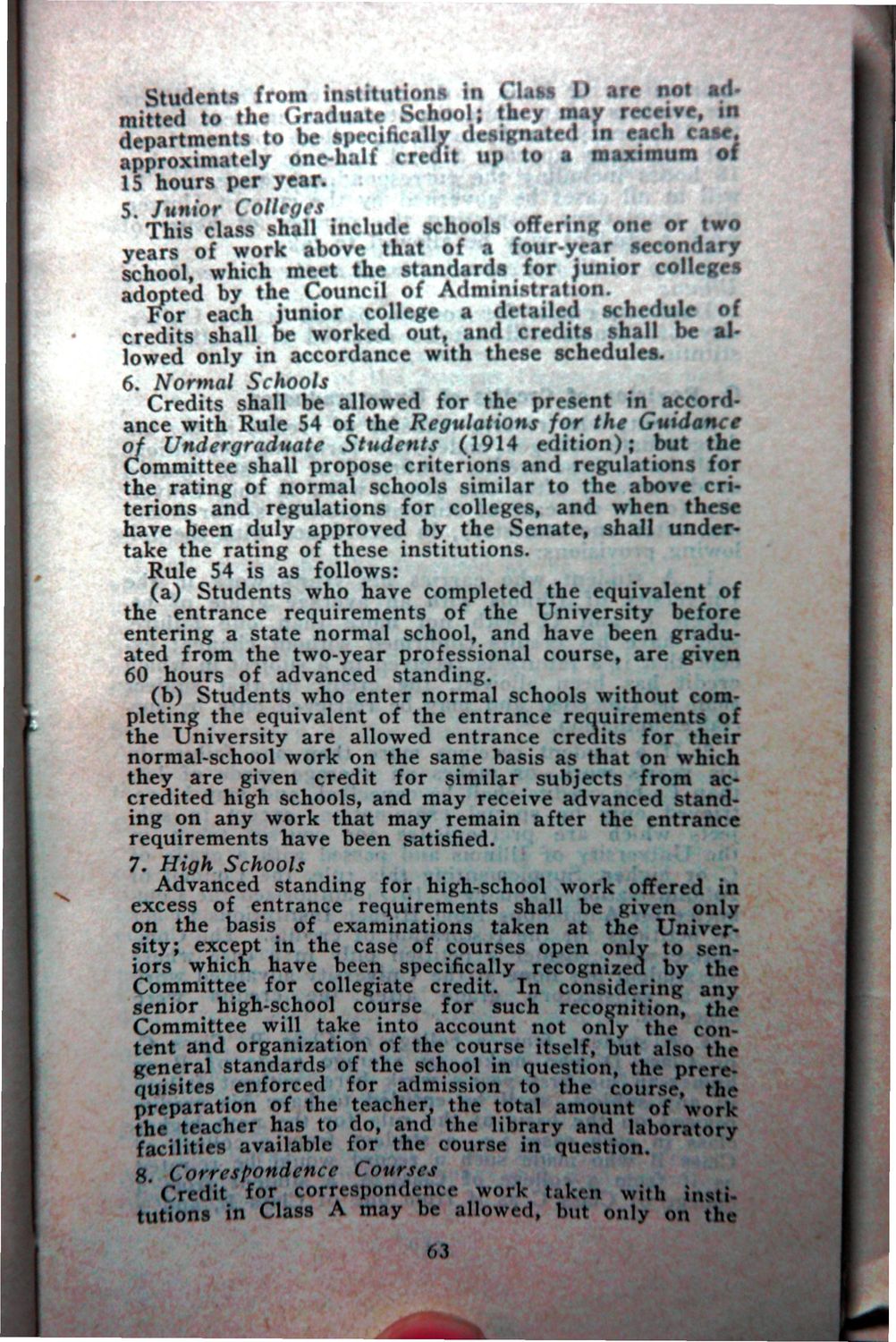| |
| |
Caption: Student Regulations - Undergraduates - 1930
This is a reduced-resolution page image for fast online browsing.

EXTRACTED TEXT FROM PAGE:
Students from institution* in Qats D are not admitted to the Graduate School; they may receive, in departments to be specifically designated in each case. 2pp?oximately one-half credit up to s maximum of 15 hours per year. 5. Junior Colleges ,—^^^^^m This class shall include schools offering one or two years of work above that of a four-year secondary school, which meet the standards for junior colleges adopted by the Council of Administration. For each junior college a detailed schedule of credits shall be worked out t and credits shall be allowed only in accordance with these schedules. 6. Normal Schools Credits shall be allowed for the present in accordance with Rule 54 of the Regulations for the Guidance of Undergraduate Students (1914 edition); but the Committee shall propose criterions and regulations for the rating of normal schools similar to the above criterions and regulations for colleges, and when these have been duly approved by the Senate, shall under* take the rating of these institutions. Rule 54 is as follows: (a) Students who have completed the equivalent of the entrance requirements of the University before entering a state normal school, and have been graduated from the two-year professional course, are given 60 hours of advanced standing. (b) Students who enter normal schools without completing the equivalent of the entrance requirements of the University are allowed entrance credits for their normal-school work on the same basis as that on which they are given credit for similar subjects from accredited high schools, and may receive advanced standing on any work that may remain after the entrance requirements have been satisfied. 7. High Schools Advanced standing for high-school work offered in of entrance requirements shall be given only on the basis of examinations taken at the University; except in the case of courses open only to seniors which have been specifically recognized by the Committee for collegiate credit. In considering any senior high-school course for such recognition, the Committee will take into account not only the content and organization of the course itself, but also the general standards of the school in question, the prerequisites enforced for admission to the course, the preparation of the teacher, the total amount of work the teacher has to do, and the library and laboratory facilities available for the course in question. 8 Correspondence Courses Credit for correspondence work taken with institutions in Class A may be allowed, but only on the 63
| |